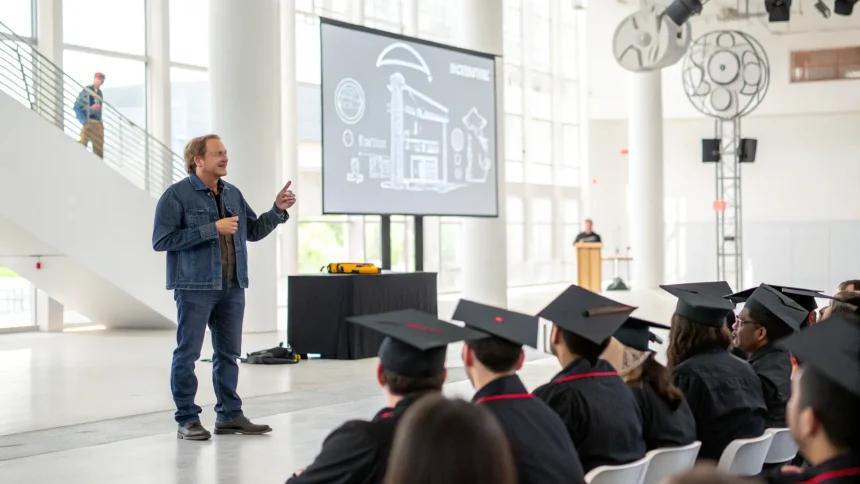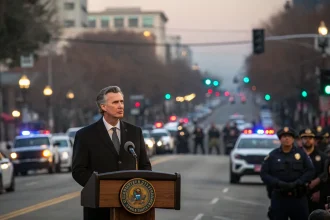Mike Rowe, founder of the Mike Rowe Works Foundation, recently shared insights on the growing influence of artificial intelligence on new college graduates and his ongoing efforts to direct more people toward trade careers.
Speaking during an appearance on “The Story,” Rowe discussed the dual challenges facing today’s graduates: a rapidly evolving job market transformed by AI technology and the persistent skills gap in trade industries across America.
AI’s Growing Influence on Recent Graduates
Rowe pointed out that artificial intelligence is reshaping employment prospects for new college graduates in unprecedented ways. Many entry-level positions that traditionally served as stepping stones for recent graduates are being automated or significantly altered by AI systems.
“College graduates today are facing a job market that looks very different than it did even five years ago,” Rowe explained. “Many of the roles they’ve been preparing for are being transformed by artificial intelligence, creating uncertainty about career paths that once seemed secure.”
This technological shift is happening at a time when student loan debt continues to rise, putting additional pressure on graduates to find well-paying jobs immediately after completing their degrees.
The Foundation’s Mission to Promote Skilled Trades
Against this backdrop of technological disruption, Rowe detailed his foundation’s work to highlight opportunities in skilled trades. The Mike Rowe Works Foundation focuses on promoting careers that don’t necessarily require a four-year degree but offer stable employment and competitive wages.
“We’re working to change the perception of trade jobs,” said Rowe. “These are careers that offer good pay, job security, and the satisfaction of creating something tangible – benefits that are increasingly rare in today’s economy.”
The foundation provides scholarships and resources for individuals pursuing education in skilled trades, including:
- Plumbing, electrical, and HVAC training
- Construction and manufacturing skills
- Automotive and aviation mechanics
- Healthcare technical positions
Addressing the Skills Gap
Rowe emphasized that while AI may be disrupting some career paths, it’s simultaneously creating a greater demand for skilled tradespeople who can build, maintain, and repair physical infrastructure.
“The skills gap in America is real and growing,” Rowe stated. “We have millions of unfilled positions in trades that pay well, while we continue to push the narrative that a four-year degree is the only path to success.”
According to data Rowe referenced, many skilled trade positions offer starting salaries comparable to or exceeding those available to recent college graduates, often without the burden of significant student loan debt.
He also noted that many trade careers are more resistant to automation and AI disruption than white-collar jobs, providing greater long-term stability in an uncertain economic landscape.
Changing Perceptions About Career Paths
A significant portion of Rowe’s work involves changing cultural perceptions about trade careers. He argues that parents, educators, and guidance counselors often steer students away from these fields despite their economic potential.
“We’ve created a stigma around working with your hands,” Rowe observed. “But the reality is that many of these jobs require sophisticated technical knowledge, problem-solving skills, and creativity – they’re far from the dirty, dead-end jobs they’re often portrayed as.”
The foundation’s outreach includes partnerships with schools, community colleges, and industry associations to create more pathways into skilled trades for students who may not be interested in or suited for traditional academic environments.
As AI continues to reshape the employment landscape, Rowe’s message about the value and stability of trade careers appears increasingly relevant to graduates facing an uncertain job market and employers struggling to find qualified workers for essential roles.









